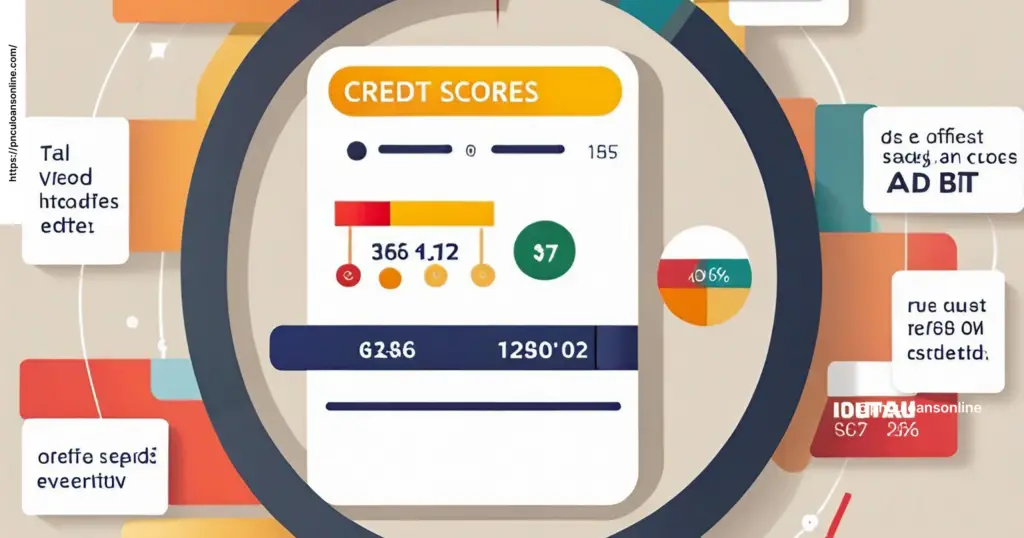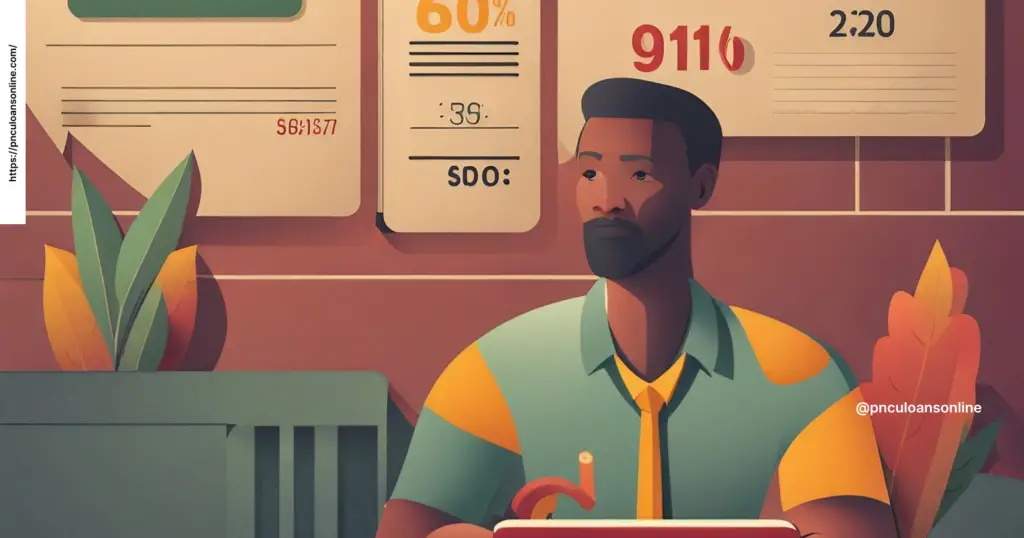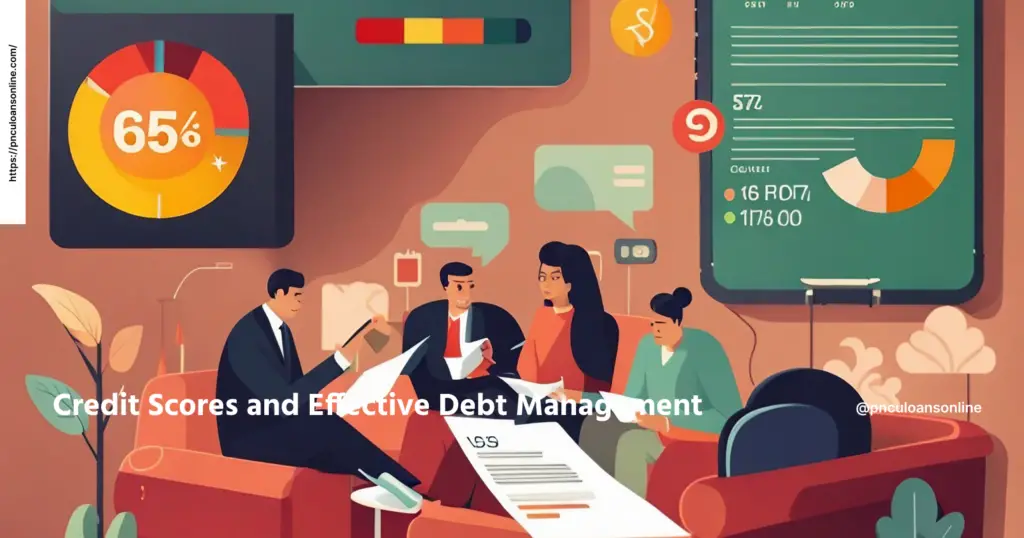Good day! Ever pondered how creditors assess your creditworthiness? Or perhaps you want to learn how to manage your debts more skillfully. You’re in the correct place, then! This essay will discuss tactics for professional debt management and take a deep dive into the realm of credit scores. So let’s get ready to untangle the mysteries of identifying credit ratings and attaining successful debt management by buckling up!
Knowledge about credit scores
How do credit scores work?
Credit scores are quantified indicators of a person’s creditworthiness. They give lenders a brief overview of your likelihood to pay back your loans. Consider it your financial responsibility report card. As a lower credit risk is indicated by a higher credit score, you become more appealing to lenders.
Credit Score-Affecting Factors
Your credit score is calculated using a variety of factors. Let’s examine some of the essential elements:
1. History of Payments
Your credit score is heavily influenced by the length of your payment history. Lenders look for a history of on-time payments. Your score might be impacted negatively by late payments or defaults.
2. Utilization of Credit
Credit usage measures how much of your available credit you are actually using. To maintain a good credit score, it’s generally advised to keep your credit utilization below 30%.
3. Credit History Duration
Your creditworthiness is also affected by the duration of your credit history. Longer credit histories are preferred by lenders as they give them more information to evaluate your financial conduct.

4. Credit Types
Your credit score can be boosted by having a variety of credit accounts, such as credit cards, loans, and mortgages. It indicates your capacity to responsibly handle various forms of credit.
5. Fresh Credit Requests
Lenders may be concerned if a borrower submits numerous credit applications in a short period of time. A hard inquiry is usually the consequence of every application, and this temporarily decreases your credit score. Applying for credit is best done cautiously.
various credit scores
Now that we are aware of the variables affecting credit ratings, let’s investigate the many categories of credit scores that are frequently used:
1. FICO Score
One of the most well-known credit scoring schemes is the FICO Score. A higher number indicates greater creditworthiness, and it runs from 300 to 850. Data from credit bureaus is used to create FICO scores.
2. VantageScore
Another well-liked credit scoring model is VantageScore. Additionally, the range is 300 to 850; higher scores indicate a lesser credit risk. While VantageScore takes into account many of the same characteristics as the FICO Score, it may weigh them differently.
3. Individual Credit Bureau Scores
The scoring formulas used by credit agencies like Experian, Equifax, and TransUnion vary. These scores may differ slightly, but they typically evaluate creditworthiness according to the same broad principles.
Managing Debt Effectively
1. Establish a budget
A budget is a crucial tool for money management. To get a comprehensive view of your financial status, start by making a list of your income and expenses. To stay on track, set aside money for debt repayment and monitor your spending.
2. Give high-interest debts top priority
If you have several debts, give the highest interest ones top priority. By taking on these bills head-on, you’ll lessen the interest that accumulates over time, ultimately saving you money.
3. Avalanche or snowball technique
The snowball and avalanche approaches are two well-liked ways to pay off debts. With the snowball strategy, you start by paying off your smaller bills and build momentum as you tackle bigger ones. In order to save you more money on interest payments, the avalanche technique prioritizes paying off debts with the highest interest rates first.
4. Talk to your creditors
Don’t be afraid to contact your creditors if you’re finding it difficult to pay your debts on time. They might be open to negotiating other repayment terms or lowering interest rates. Recall that communication is essential!
5. Prevent Acquiring New Debt
While you’re trying to manage your debt, it may be tempting to get more credit, but you should avoid the desire. Prior to considering taking on new debt, concentrate on paying down existing obligations.
6. Look for Expert Assistance
Consider obtaining assistance from credit counseling organizations or financial consultants if your obligations become too much for you to handle on your own. They can offer direction and assistance that is catered to your particular circumstance.
The Influence of Credit
A high credit score makes a variety of chances possible. Let’s examine a few advantages:
1. Ability to get lower interest rates
A high credit score might cut your interest rates when you apply for loans or credit cards. As a result, you’ll wind up paying less interest over time, which will save you money and help you manage your debt.
2. Greater Probability of Loan Approval
If your credit history is good, lenders are more likely to approve your loan applications. Having a high credit score shows lenders that you can manage credit responsibly and are a trustworthy borrower.
3. Expanded Credit Caps
You’re more likely to get greater credit limits on your credit cards if you have a strong credit score. You will have more purchasing power and spending management freedom as a result.
4. More affordable insurance rates
Did you realize that some insurance providers base pricing on credit scores? The cost of your auto, house, or other types of insurance coverage may be reduced as a result of having a strong credit score.
5. Possibilities for Renting
Landlords frequently look at credit reports as part of the application process for tenants wishing to rent a house or an apartment. Your chances of finding your ideal rental property can substantially up if you have a decent credit score.
Keeping Your Credit Score Safe
Now that you are aware of how important a high credit score is, let’s talk about some advice for preserving and protecting it:
1. Consistently check your credit
To ensure the authenticity of your credit report, keep a tight eye on it. Each of the main credit bureaus is required to provide you with a free credit report once a year. You can find any mistakes or fraudulent activities that might have a negative influence on your credit score by reviewing your report.
2. Pay invoices promptly
Consistently making on-time payments on your bills is one of the most important aspects of keeping a decent credit score. Your rating can be seriously harmed by late payments. To make sure you pay your bills on time, set up reminders, automate payments, or make a budget.
3. Limit your credit card usage
While using credit cards wisely is crucial, avoid using all available credit. Your credit score may suffer if you have a high credit utilization rate. Keep your credit card balances significantly lower than the maximum amount allowed.

4. Pay attention to any new credit applications
A hard inquiry is made of your credit report each time you apply for new credit. You risk having a lower credit score if you make too many queries quickly. Applying for credit should only be done when absolutely essential. Avoid creating many new accounts at once.
5. Establish a Credible Credit History
Open credit accounts and appropriately manage them to begin establishing your credit history as soon as possible. When determining credit ratings, having a longer credit history is advantageous. If you don’t have any credit history, you might want to start with a secured credit card or add yourself as an authorized user to someone else’s account.
Conclusion:
Congratulations! You now have a deeper comprehension of credit ratings and practical debt-management techniques. Keep in mind that maintaining a decent credit score necessitates prudent borrowing practices, reliable payment behavior, and careful financial management. You’ll be well on your way to gaining financial freedom if you put the advice in this article to use. So take control of your credit rating, make intelligent use of your debt, and clear the way for a better financial future!
FAQs:
What is a credit score and why is it significant, to begin with?
Your creditworthiness is expressed numerically by your credit score. Lenders use it to determine the risk of lending you money. Your chances of being approved for loans and credit cards at competitive interest rates increase with a higher credit score because it denotes a lesser credit risk.
How is a credit rating determined?
Your payment history, credit utilization, length of credit history, categories of credit, and recent credit applications are just a few of the variables used to create credit scores. Different credit scoring models, including FICO Score and VantageScore, give each factor a different amount of weight.
How can my credit score increase?
Responsible financial behavior is a requirement for raising your credit score. Start by sending all of your bills and debts in on schedule. Maintain modest credit card balances and try not to utilize more than 30% of your credit line. Maintain a variety of credit types and refrain from opening too many new credit accounts quickly. It’s also crucial to routinely check your credit report for fraud and inaccuracies.
What are some proven methods for managing debt?
Budgeting, prioritizing high-interest loans for repayment, and taking into account debt consolidation or creditor negotiation are all essential components of effective debt management. Debt can be paid off methodically using the snowball and avalanche approaches. It’s critical to prioritize paying off existing debt while avoiding taking on additional loans. Financial advisors or credit counseling organizations can offer individualized advice if you seek their professional assistance.
Can a low credit score be improved?
You can bounce back from having a low credit score, yes. Start by dealing with the issues that contributed to the low credit score, like late payments or large credit card balances. Reduce your debt, pay your bills on time consistently, and prevent new credit issues. Your credit score might rise over time if you manage your money responsibly.

